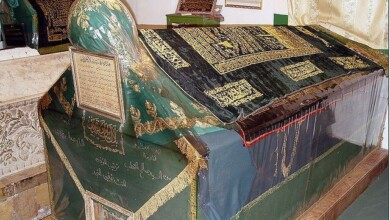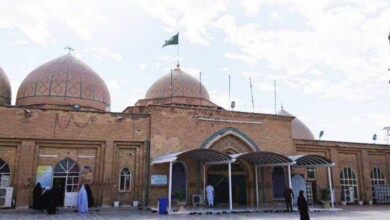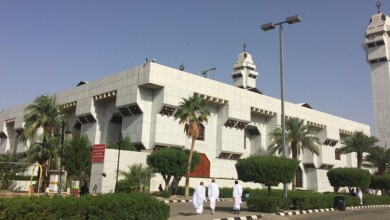The enduring legacy of Sa`id ibn Zayd
Sa’id was born in Makkah to a noble family.
His father, Zayd ibn Amr, was known for his distinct rejection of idol worship and belief in the oneness of God. Zayd ibn Amr’s faith was not only ahead of his time but also paved the way for his son’s later conversion to Islam. Sa’id’s mother, Fatimah bint al-Aswad, was from a prominent Quraysh family, which meant that Sa`îd was born into a society that upheld polytheism and idol worship. His upbringing was in a world of idols and pagan practices, but the faith of his father and his exposure to the idea of monotheism would later shape his destiny.
Sa’id’s conversion to Islam is linked to his encounter with the message of Prophet Muhammad (peace be upon him) in the early days of Islam. Like many companions, Sa’id initially resisted the new faith. However, when he became convinced of the truth of the Prophet’s teachings, Sa`id, alongside his wife, Fatimah bint al-Khattab (sister to Umar bin al-Khattab), accepted Islam. He would later become one of the most dedicated supporters of the Prophet.
Sa’id ibn Zayd was an integral member of the nascent Muslim community in Makkah. He was among those who made the hijrah (migration) to Madinah, where the early Muslims sought refuge from the persecution they faced in Makkah. His migration to Madinah was symbolic not only of his commitment to the faith but also of his belief in the leadership of Prophet Muhammad (peace be upon him).
In Madinah, Sa’id was a trusted companion, known for his piety, humility, and military prowess. Sa’id participated in many of the major battles fought by the early Muslims, including the Battle of Uhud and the Battle of Yarmouk. His courage on the battlefield was legendary. One of the most notable incidents from his military career came during the Battle of Yarmouk, where he demonstrated extraordinary valour in the face of overwhelming odds. Despite being heavily outnumbered, Sa’id, alongside his fellow companions, helped secure a decisive victory for the Muslims, ensuring the survival of the Islamic state in the region.
He did not directly participate in the Battle of Badr since the Prophet (peace be upon him) had sent him with Talha to spy on the Quraysh. They returned after the Battle of Badr had already concluded. Nevertheless, the Prophet (peace be upon him) shot their arrows to ensure they received their share of the reward.
Beyond his military contributions, Sa`îd ibn Zayd is remembered for his deep commitment to justice. His sense of fairness and relentless pursuit of truth earned him the respect of his contemporaries. He was known for his honesty and integrity, and he played a key role in ensuring that the early Muslim community remained united.
Sa`îd’s approach to justice was not just confined to legal matters but extended to his interactions as well. He was known for his generosity, often sharing his wealth with the needy and the poor. His deep sense of social responsibility reflected the values taught by the Prophet Muhammad (peace be upon him), and he exemplified these values in his day-to-day life.
After the death of Prophet Muhammad (peace be upon him), Sa`îd continued to play a significant role in the community, participating in the major events of the early caliphate. He was active during the reigns of the first four caliphs, Abu Bakr, Umar, Uthman, and Ali. He participated in the expeditions that led to the conquests of Syria and served as governor of Damascus during the caliphate of Umar. During this time, he witnessed and contributed to the Islamic expansion.
Sa`îd ibn Zayd passed away in 672 at al-Aqiq aged 70. His body was carried back to Madinah al-Munawwarah by Sa’d ibn Abi Waqqas and Abdullah ibn Umar. He was buried in the revered Jannatul Baqi cemetery in Madinah.




